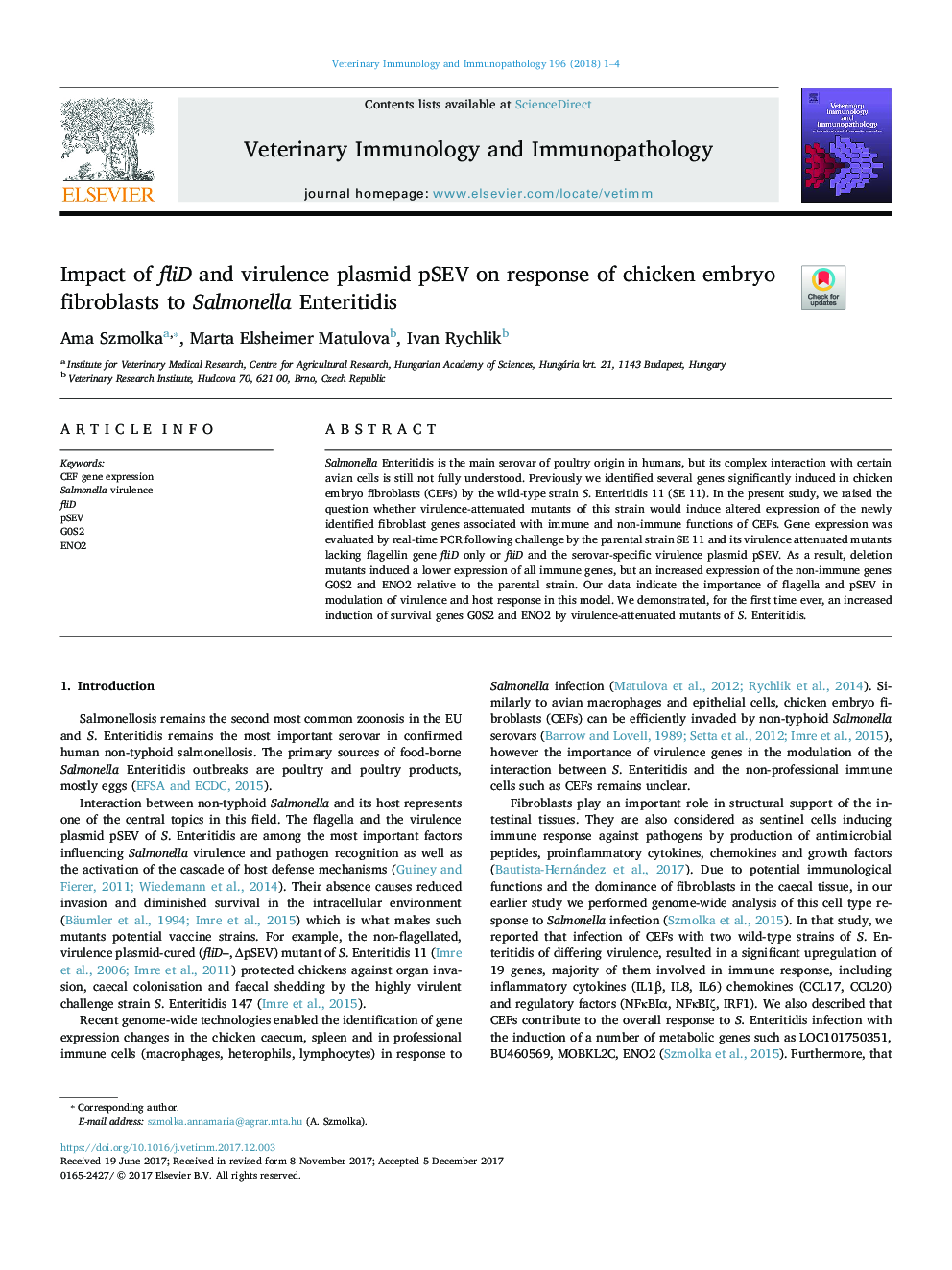| Article ID | Journal | Published Year | Pages | File Type |
|---|---|---|---|---|
| 8504761 | Veterinary Immunology and Immunopathology | 2018 | 4 Pages |
Abstract
Salmonella Enteritidis is the main serovar of poultry origin in humans, but its complex interaction with certain avian cells is still not fully understood. Previously we identified several genes significantly induced in chicken embryo fibroblasts (CEFs) by the wild-type strain S. Enteritidis 11 (SE 11). In the present study, we raised the question whether virulence-attenuated mutants of this strain would induce altered expression of the newly identified fibroblast genes associated with immune and non-immune functions of CEFs. Gene expression was evaluated by real-time PCR following challenge by the parental strain SE 11 and its virulence attenuated mutants lacking flagellin gene fliD only or fliD and the serovar-specific virulence plasmid pSEV. As a result, deletion mutants induced a lower expression of all immune genes, but an increased expression of the non-immune genes G0S2 and ENO2 relative to the parental strain. Our data indicate the importance of flagella and pSEV in modulation of virulence and host response in this model. We demonstrated, for the first time ever, an increased induction of survival genes G0S2 and ENO2 by virulence-attenuated mutants of S. Enteritidis.
Related Topics
Life Sciences
Agricultural and Biological Sciences
Animal Science and Zoology
Authors
Ama Szmolka, Marta Elsheimer Matulova, Ivan Rychlik,
